“People won’t understand us if they don’t see us for who we are.”
The loud and proud international network of nuns fighting for LGBT+ visibility.
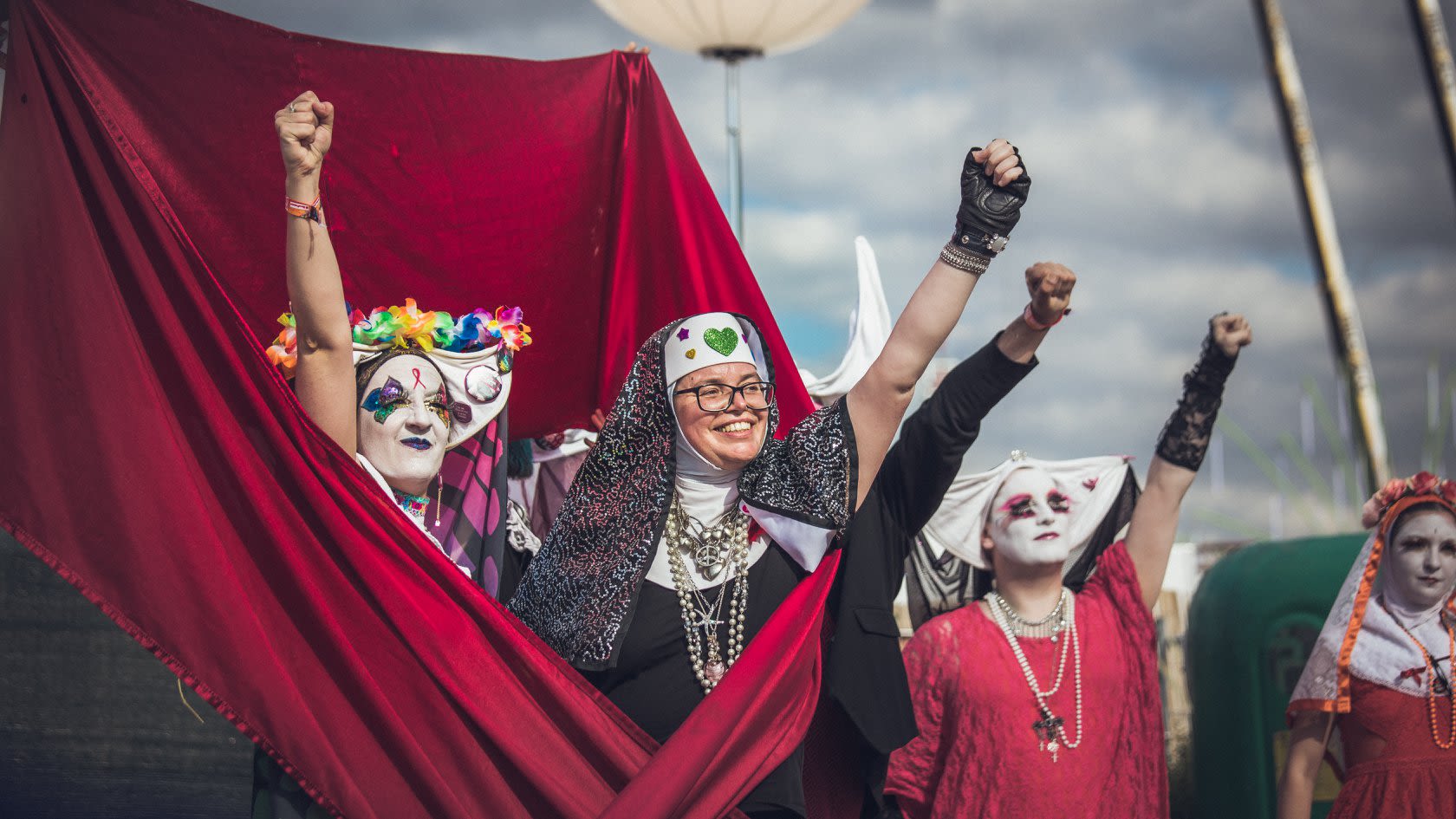
"Sister Polly is chatty, quirky, and a little bit crude,” she tells me as we share a scone and a pot of Earl Grey on Sheffield High Street. A trans man when not in habit, Sr Polly is one of 3000 queer activists who identify as secular nuns. Together, they're known as the Sisters of Perpetual Indulgence.
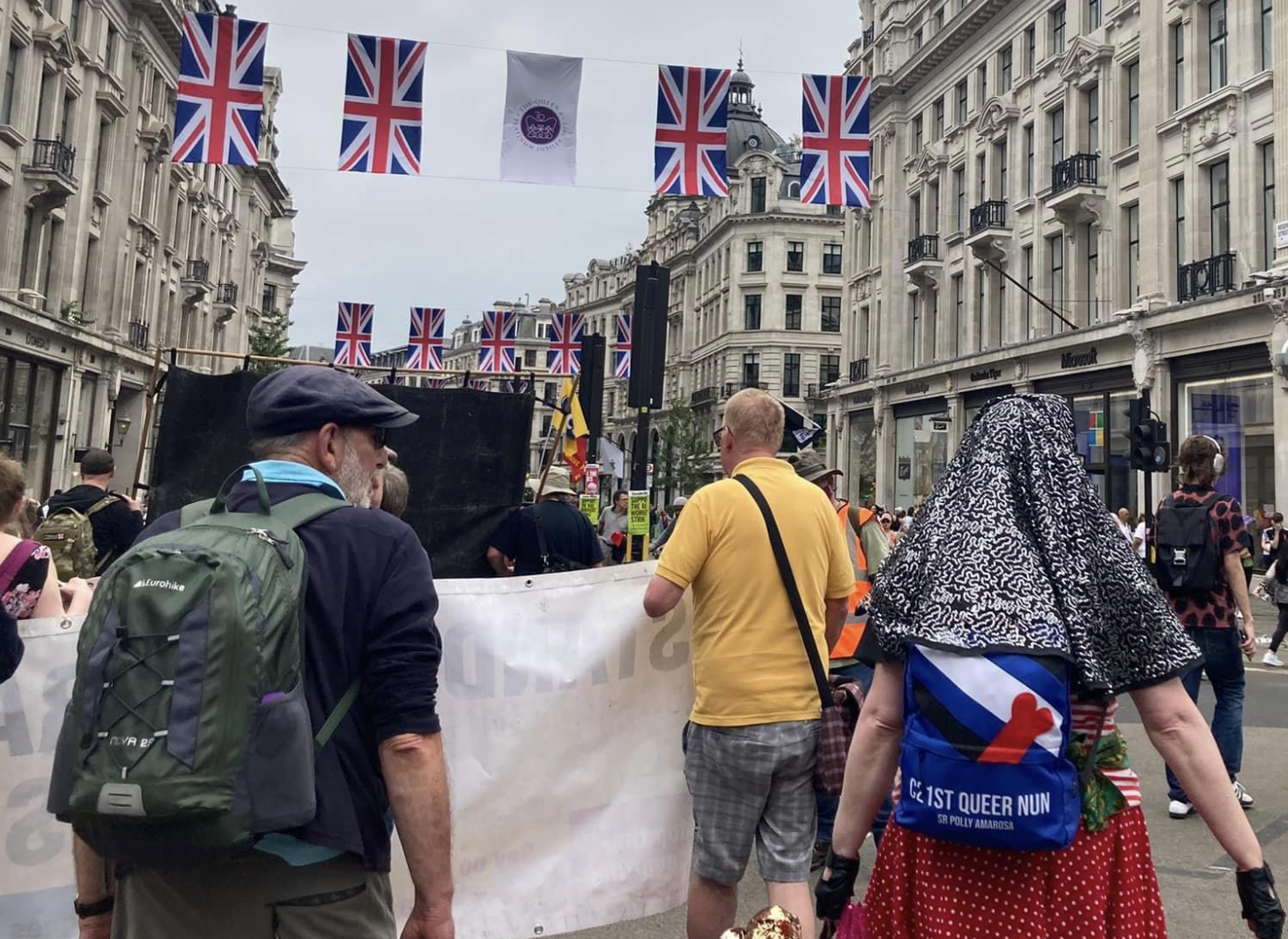
In 2021, Sr Polly set up the Trans Pennine Travelling Sisters, a group of Sisters who carry out their work across the Trans Pennine Way. This is one way that the TPTS differs to the traditional houses, which fulfill their mission within a specific city.
“The aim is to create a caravan of people. Whether it's just for a day or a year, I'm the cabbie and I’ll welcome you aboard," Sr Polly says.
As well, while traditional houses follow an internal process for members to become Sisters, also known as the ordination process, Sr Polly wanted to create a less formal way to be part of the international network.
Sisters can be a part of the Trans Pennine Travelling Sisters without going through the formal ranks. As many of the TPTS Sisters have disabilities or difficult situations, Sr Polly established a mission without hierarchies or expectations.
“This mission has to be as inclusive as it can possibly be,” she says. “I don’t want people getting left behind.”
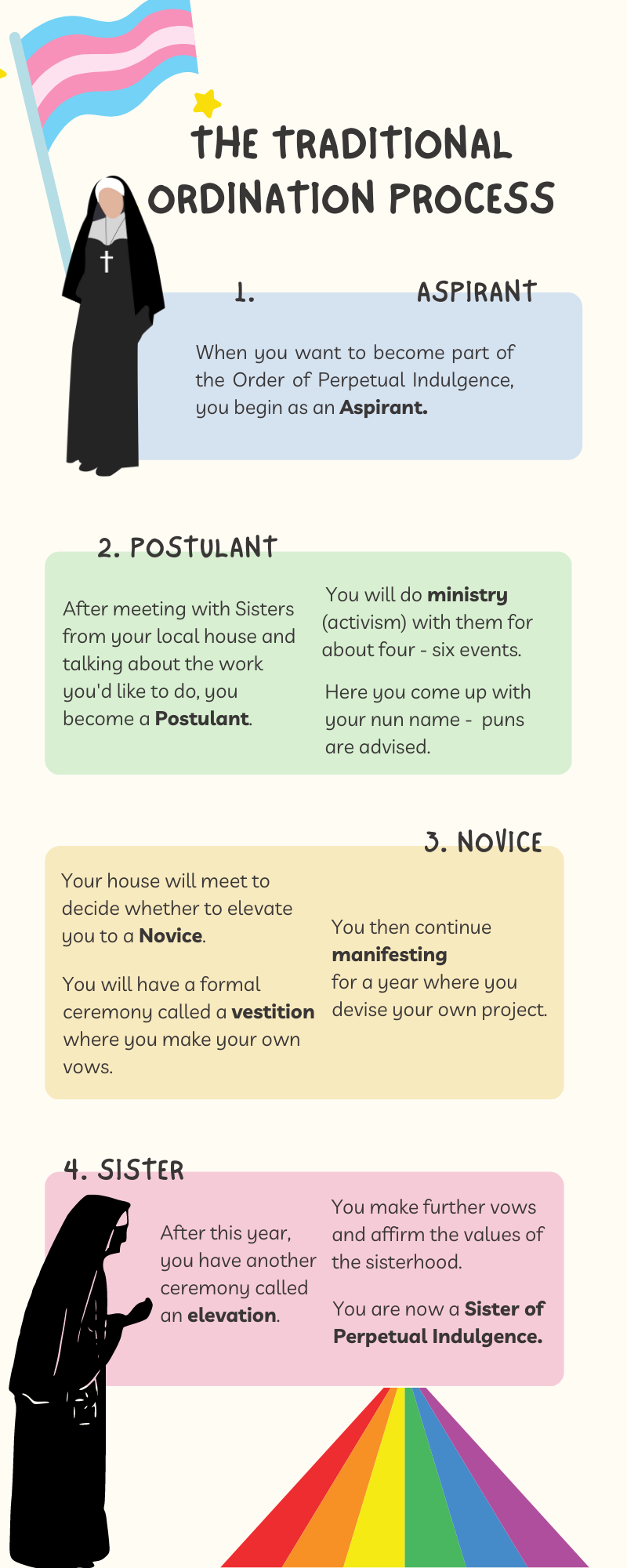
While it may be the first time you’ve heard of queer nuns, the sisterhood isn’t new. Sister Frigidity of the Nocturnal Emission, (Sister Fridge for short) was part of the first UK sisterhood in the nineties. Sr Fridge, who’s now in her sixties, explains that the London house began as a political statement against the government’s treatment of Aids. “Back then, being a sister was a queer stance against heteronormative and murderous policies,” she says.
“Back then, being a sister was a queer stance against heteronormative and murderous policies”
Life as a London Sister wasn’t just fuelled by anger. Mother Mandragora, a former London Sister who now identifies as non-binary, said: “It was extremely liberating. It gave me an opportunity to explore aspects of femininity that were closed off to me at the time.” Though the London house is no longer active, their pride and fighting spirit has influenced houses across the world.
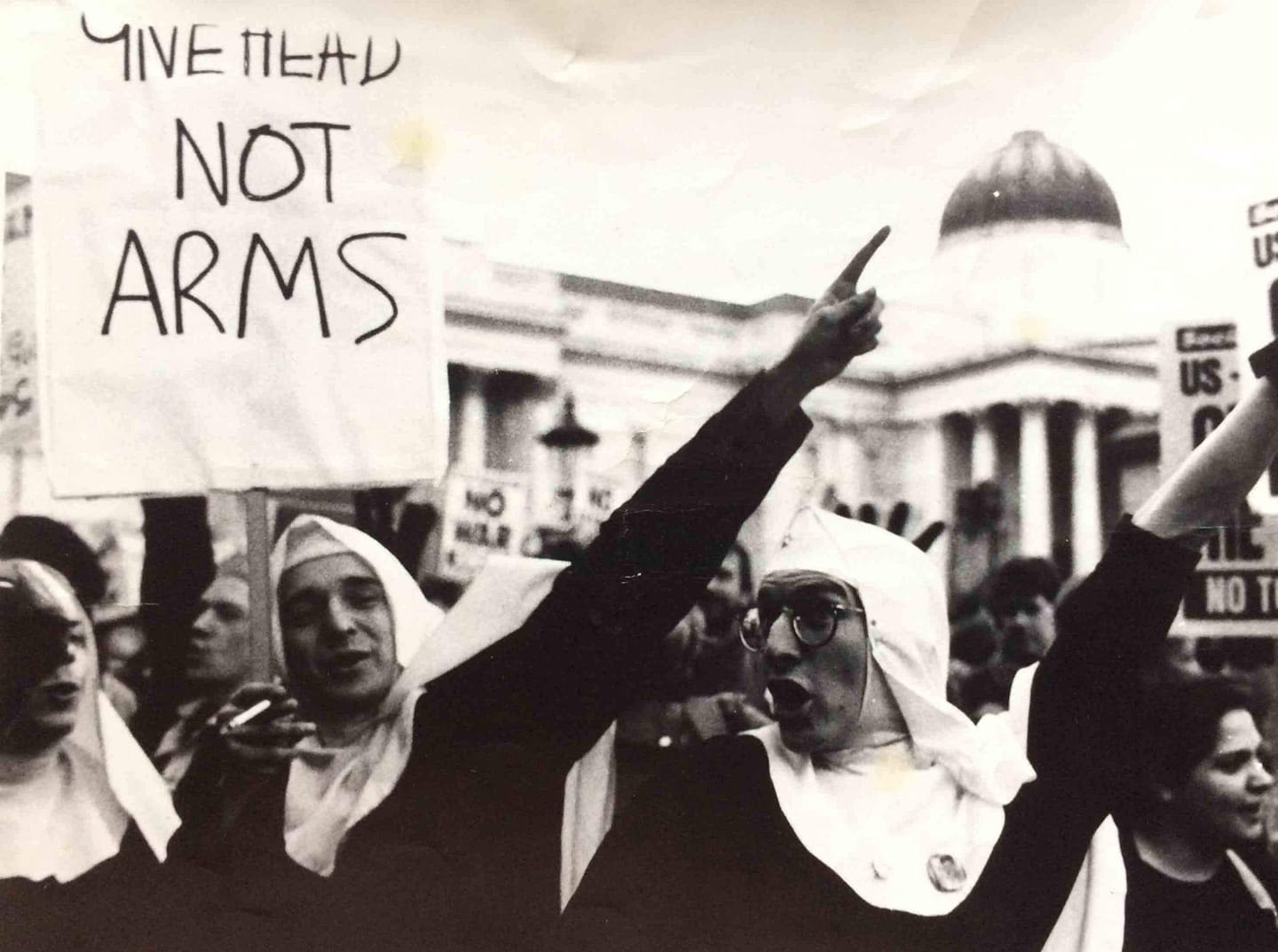
Much like the nineties, it is both a busy and tragic period for queer politics - with the rights and culture of the trans community being particularly targeted. In England, the murder of a 16-year-old transgender girl, Brianna Ghey, is being investigated as a hate crime. In Scotland, trans women will first be sent to a male prison if incarcerated. In the US, over a third of states are filing bills which target the legality of drag performances.
"When horrible things like this occur, it’s really important not to hide,” Sister Polly says as she discusses how transphobia is dominating the headlines. Alongside community group Trans Leeds, the TPTS celebrated the Trans Day of Visibility by offering sainthood to the Gathered Faithful - essentially anyone who isn’t a sister.
Sainting involves choosing a saint name and a Sister recognising a special quality. “It’s an affirmation of the queer self, a validation they are important and worthy of honour,” Sr Polly explains.
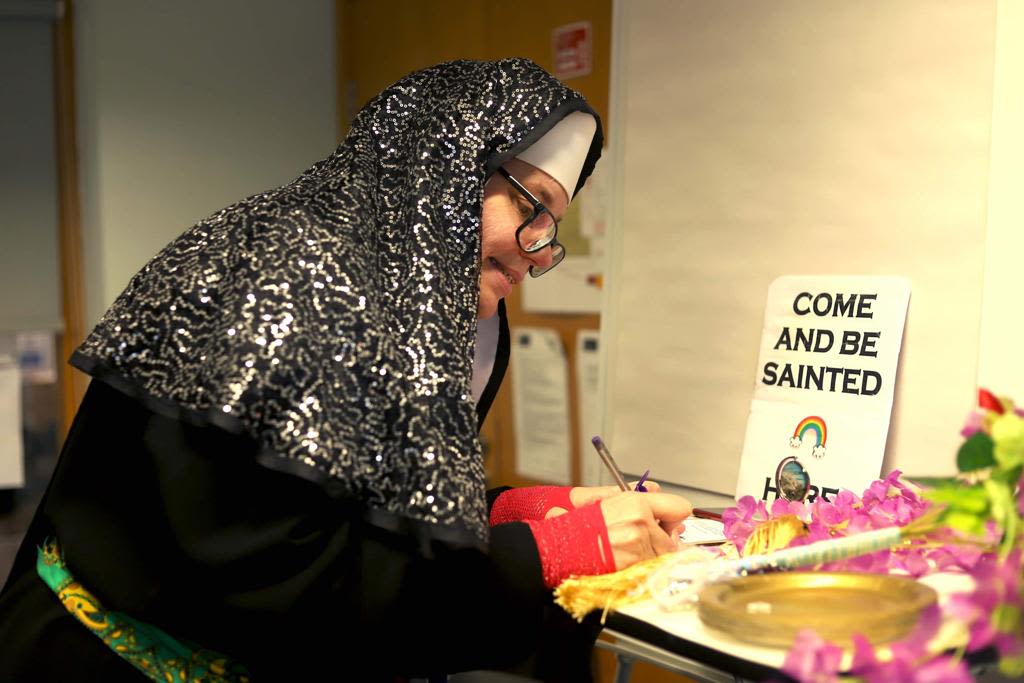
Sister Polly Amarosa writing a Saint Card at the Trans Day of Visibility. Photo Credit: Jamie Robinson
Sister Polly Amarosa writing a Saint Card at the Trans Day of Visibility. Photo Credit: Jamie Robinson
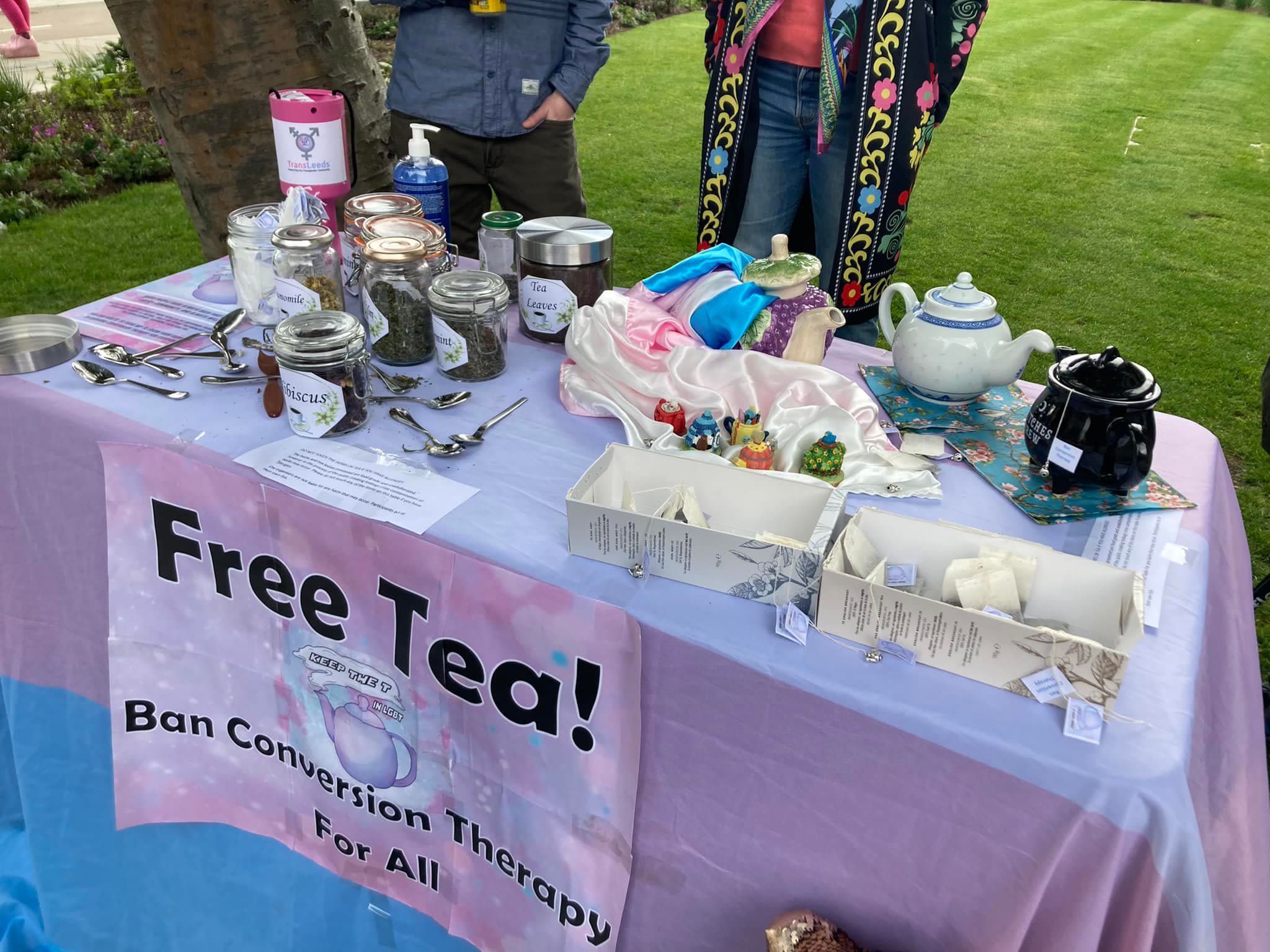
Keep the T in the LGBT Ban Conversion Therapy action with Trans Leeds, 2022, Photo Credit: Arthur Kane
Keep the T in the LGBT Ban Conversion Therapy action with Trans Leeds, 2022, Photo Credit: Arthur Kane
The TPTS have focused on attending smaller Prides - those in Marsden, Ellesmere Port, Bolton and Barnsley, with free condoms in hand and a listening ear for communities where queer culture is a bit less loud and proud. “Queer people have to rely on creative ways to make things happen,” Sr Polly says, as she recalls the time they handed out tea bags with the phrase “Keep the T in LGBT” attached to protest the government’s decision not to ban conversion therapy for transgender people. In January this year, the government banned it in all forms.
"Queer people have to rely on creative ways to make things happen"
She explains their plans to bless a newly opened LGBT+ community centre in Wakefield and sets the scene: bells ringing, incense and lots of celebratory chants. Glitter is non-negotiable. To mark the end of a blessing, they cheer: “Amen, Awomen and all the rest!”
Sister Loose Clarita, a Los Angeles Sister, describes the power of the Sisters across the pond. "People won’t understand us if they don’t see us for who we are," she says, referring to the wave of legislation restricting LGBT+ rights across the U.S. A major component of these laws is a ban on gender-affirming care for minors, from hormone treatments to surgery.
The antidote? "Education, awareness and visibility," Sr Clarita says with certainty. LA Sisters are currently trying to improve political engagement, encouraging those traditionally isolated from the political sphere to vote in upcoming local elections.
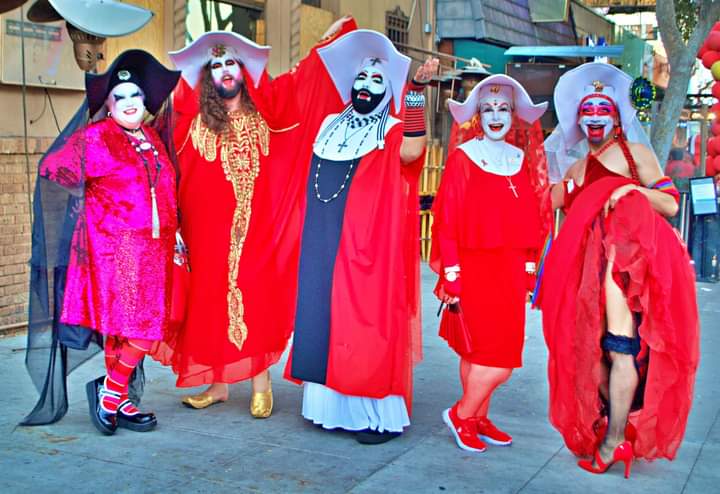

Some Sisters choose to cover their faces in white makeup, known as whiteface. This began for Sisters who wanted to cover aids-related marks, and is now regarded in some houses as a major part of preparing for ministry. Novice Ann, who was an Edinburgh Sister for 12 years before founding the Glasgow house, says whiteface lets people know how she is feeling. Some days she’ll cover it with butterflies, others she’ll choose hearts.
“I’m a cosmic jester,” she says, referring to her work in Glasgow where she recently hosted a ‘loopy bingo night’ to raise money for local LGBT+ charities. Just like a jester, she is immediately hilarious and fiercely warm, with an important message at the core of her mission - “that everybody loves, and everybody is loved.”
Novie Ann's Most Memorable Manifestation
Though the future of queer rights and culture may at times seem bleak, past and present sisters have shown that a creative, inclusive community is invaluable for queer visibility. I ask Novice Ann if her unpaid work as a sister can ever feel thankless. "If I can do anything to stop the relentless borders, barbarity and hatred, then I must try it,” she replies. “As a sister, it’s my duty to destroy the systems that stop everyone participating.”
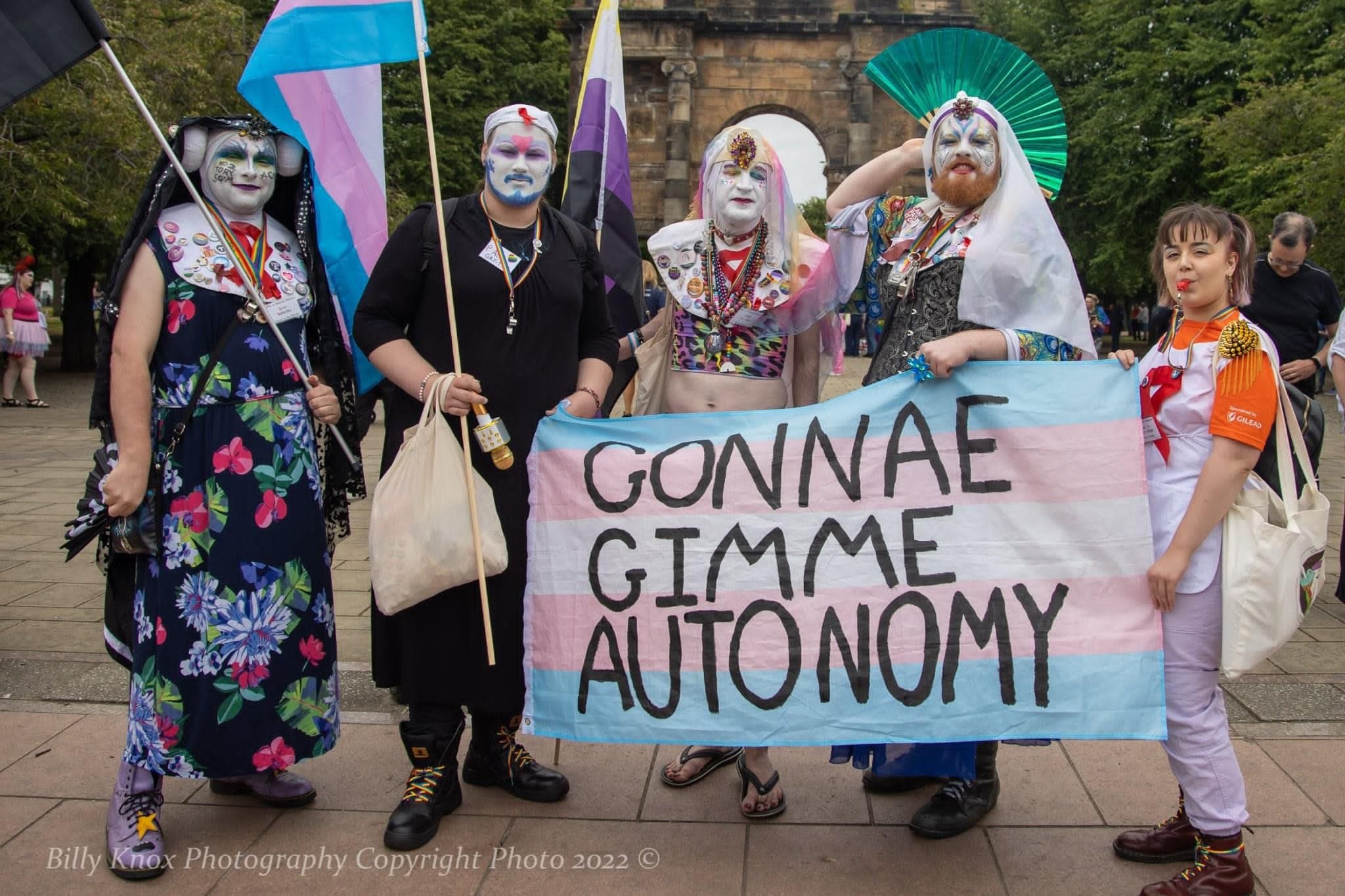
Novice Ann and the Glasgow Mission at a Scottish Independence protest, 2022. Photo credit: Billy Knox
Novice Ann and the Glasgow Mission at a Scottish Independence protest, 2022. Photo credit: Billy Knox
Since the UK government blocked the Scottish-lead Gender Recognition Bill in January, which streamlined the process for transgender individuals to change their gender, Novice Ann fears what effect this may have on LGBTQ+ youth. “As sisters, we have to channel joy even in awful times,” she says. She is motivated by the impact her unapologetic queerness can have on younger generations.
